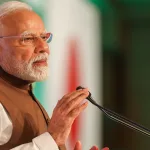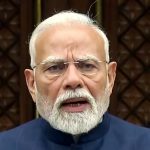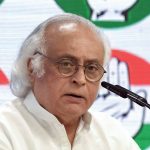Can you name the subject in the school curriculum (of Jammu and Kashmir schools) which most students unfortunately perceive as dry, uninteresting? You may answer: Maths. No issues with this answer do I have. That subject, however, is not Maths but one which leaves most students feel like a fish out of water. Read about it later on in this column.
The teaching of Kashmiri as a subject in our schools probably has seen its better days and calls for a rethink over its continuity. That Kashmiri language is our mother tongue and we must place it as one of the subjects in schools, and it lives as a strong notion among certain sections of people; teachers included. But this argument is rooted in a sentiment for the language. Not in a convincing logic.
Notably, Kashmiri was promoted as one of the five official languages of Jammu and Kashmir (JK) in 2020, following the neutralization of Article 370 in August 2019. True, the language is yet to work as a medium of official communication. For that to happen, much work needs to be done across the political landscape. Paramount is media’’s role. It can publish news and views in Kashmiri as well. Sangarmal is a leading Kashmiri language newspaper published from Srinagar.
According to a study by the United Nations, every two weeks a language disappears from the earth. This also vanishes the entire culture and heritage linked with it. At least 43% of the estimated 6000 languages spoken in the world are said to be on the cusp of extinction.
Kashmiri was an endangered language before it was included in the school curriculum. In 1997, a resolution was passed by Adbi Markaz Kamraz (AMK) that Kashmiri language be included in school curriculum. The School Education Department deserves appreciation for prescribing Kashmiri as a subject at schools.
A strong evidence exists that a child’s early education should be in the language with which the child arrives at school. This facilitates his or her mental development, making learning easier and better. Children speak Kashmiri at home; it should be the medium of instruction in the early years. Once the child has learnt the basics of it, the medium can be shifted to other languages.
For the United Nations Scientific and Cultural Organization (UNESCO) , education — based on the mother tongue — must start from the early years because early childhood care and education lays the foundation of learning.
So teaching in Kashmiri in the early years makes sense for large areas in Jammu and Kashmir— just as it makes sense to have Dogri in early education in its speaking areas and Hindi in the areas where it is spoken . This provision makes children interested in learning.
Around 35% people speak Kashmiri in J&K if a study is to be believed. So why not teach it at schools? If a vast majority speaks the language and are able to express what they need to in Kashmiri, there must not be any issue with using Kashmiri in schools. Its teaching / learning as a subject for children should merit appreciation.
Teaching in the mother tongue will make a child feel more comfortable in school and gain the basics of the language(s) he or she is exposed to. Also he or she will benefit from the conceptual development required at this stage.
But this columnist’s years of experience in school teaching stand testimony that Kashmiri subject is subject to neglect, indifference and inattention. Yes, the subject wins space in the daily teaching schedule but is hardly taught in actuality. Even if taught, then it is simply read loudly for learners to repeat. Its alphabet is not taught. Both formative and summative assessments indicate that most students are unable to read or write in the language properly.
Secondly, most teachers— not knowing Kashmiri subject —perceive that teaching this subject needs less efforts and as such muscle and tussle to teach it . This defeats the purpose of having Kashmiri in the curriculum. The ability to speak a language is no qualification for being able to teach it too.
Thirdly, we mostly lack Kashmiri subject knowing teachers at the elementary level where its teaching is compulsory. And if we have one or two teachers anywhere, they either feel inferiority in teaching it or they prefer posting at the secondary level where the subject is taught as an optional one.
What complicates the situation is that eight students out of ten show no interest or concern for Kashmiri subject. Thus, its learning does not receive fair treatment, pushing it to the backseat. Main reason stated is no scope in future. Two steps can win focus on Kashmiri subject and make it student favorite: one, excellent teaching. Two, career opportunities in it.
It is noteworthy that we have so many subjects to teach or learn. Our students and teachers are overburdened . They learn/ teach English, Urdu, social studies, mathematics, science. And there is a lot in each subject as well. Regarding curricula in South Asia, many experts have voiced that we overburden our students and teachers and force the latter to hurriedly complete the curricula rather than focus on what students should be learning. Should Kashmiri be taken out? Are students gaining from it? Do not they hate it?
Students are learning at least two languages, Urdu and English, even in the early years. Why not discontinue with the third language? Reading Kashmiri alongside Urdu confuses students upon finding some similarities in sounds or letters. This badly affects the learning act. Undeniably, we do not even have teachers who can properly teach Urdu and English as languages.
Kashmiri has become the medium of interaction in most areas in Kashmir. We need to make its use a norm. Once the stigma against using Kashmiri gets away, its position will improve.
Using Kashmiri as a medium of instruction is sensible from another angle: it improves learning among children who speak Kashmiri at home. Introducing Kashmiri as a subject in schools could be fruitful. But it demands useful adjustments and also an effective implementation plan.
(Author is teacher by profession and RK Columnist. He can be reached on: [email protected])





